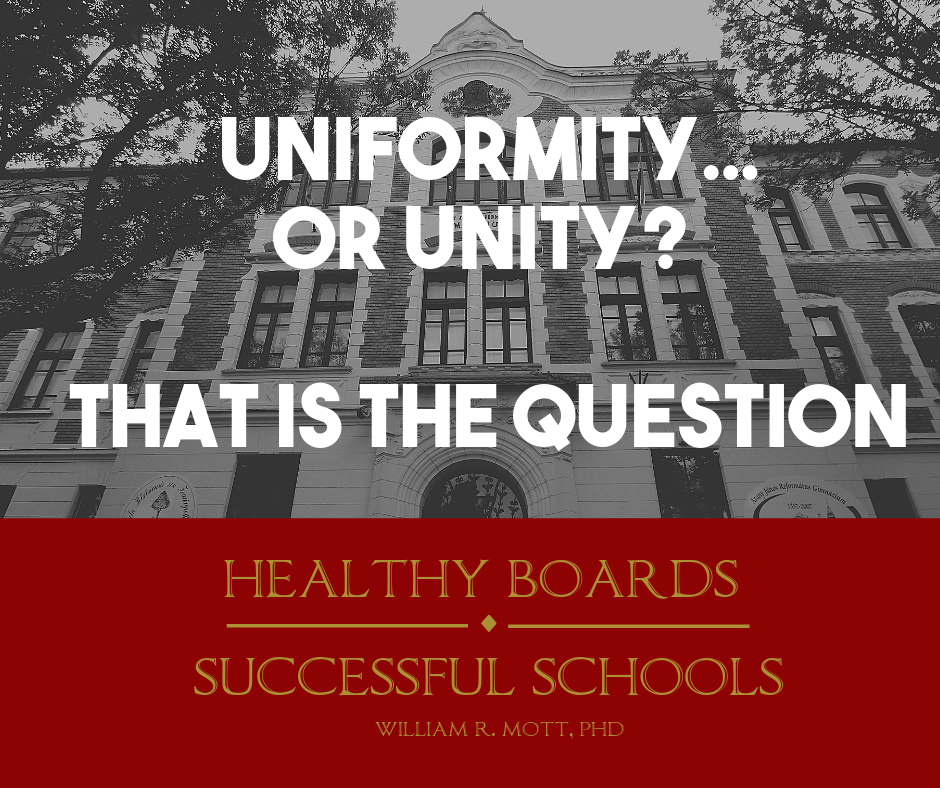Uniformity Simply Put is Sameness. Unity is Singleness of Purpose that Allows the School to Move Forward.
When it comes to the governing boards for independent and faith-based schools, the belief in “One Board, One Voice” is a compelling best-practices concept that should be the mantra of every board. Unfortunately, we live in a culture that all too often embraces conflict as the best way to resolve issues. Will such a stance really advance the school and enhance the experience of our students?
In the introduction of my book, I felt it necessary to say right up front that a board can strive for uniformity or unity. These are easily confused and at times that they may be indistinguishable by some. But they are quite different. Uniformity only means “sameness.” Each member saying the same thing, or even a prescribed set of talking points and nothing else. Because independent school governing boards are counted on for very specific roles and responsibilities, you desire much more than sameness. This is not a best practice.
Unity on the other hand accepts the unique variety of personalities, skillsets, and knowledge bases that may be found on any board that is functioning at a high level. Each board member may have different passions and each brings distinctive insight to issues great and small. By no means is this a weakness. On the contrary, a board with diversity that is working together, focused on common goals and objectives can speak and act with a strong sense of unity and a powerful sense of purpose.
When the board members, the chair, and head of school are unified; the faculty, staff, students and families will know this. The school is stronger and remains poised to accomplish its objectives and can reasonably expect to plan its future with optimism.

